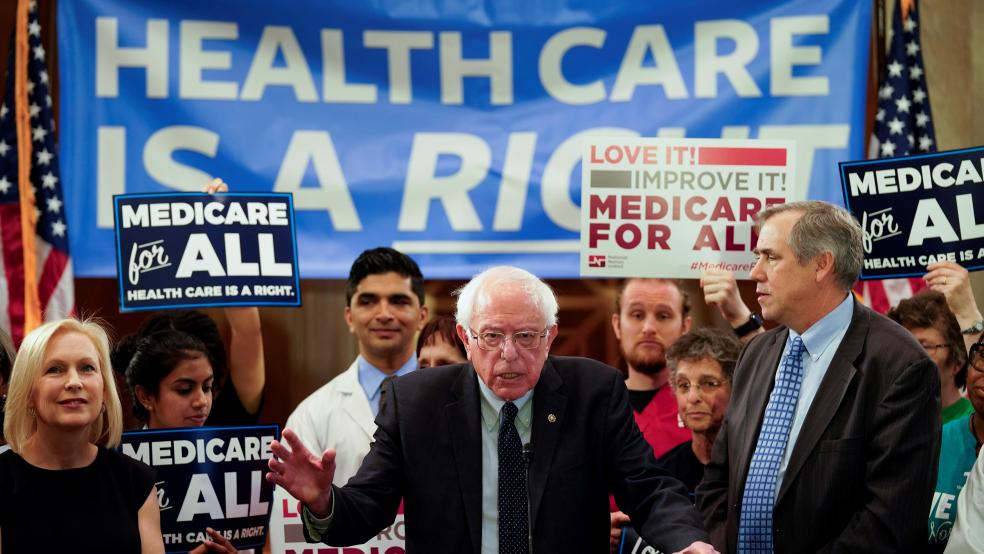A new Morning Consult/Politico poll finds support among Democrats rising for candidates that favor Medicare for All over building on the Affordable Care Act. The survey found a 52-point margin of support — the share of those who said they would be more likely to back a candidate minus the share who said they would be less likely — for a candidate that backs Medicare for All, up from 35 points in January.
The poll surveyed 1,987 registered voters, including 768 Democratic voters, and had an overall margin of error of 2 percentage points. The Democratic subsample has a margin of error of 4 percentage points.
The Morning Consult results are similar to the findings of a new Monmouth University poll in which 58% of Democratic voters say it is very important to them that the party nominate someone who supports “Medicare for All.” But the poll also found that most voters, 53%, say they want a system that allows people to opt in to Medicare while maintaining a private insurance market — what policy experts call a “public option.” Just 22% say they want to switch to a system where a government-run health plan replaces private insurance.
That may help explain why the Morning Consult poll finds that former vice president Joe Biden, who favors expanding the ACA by adding a public option, holds a 13-point advantage over Sen. Bernie Sanders (I-Vt.), who has championed Medicare for All.
Another explanation: Voters have other issues on their minds. Leslie Dach, campaign chair for health care advocacy group Protect Our Care, told Morning Consult that the latest poll results showing continued support for Biden demonstrate that Democratic voters are driven by a desire to remove President Trump from office more than by questions about health care. And on the issue of health care, they’re more responsive to pocketbook issues like drug costs and protections for people with pre-existing conditions than to broader questions about the future structure of the U.S. health care system.





